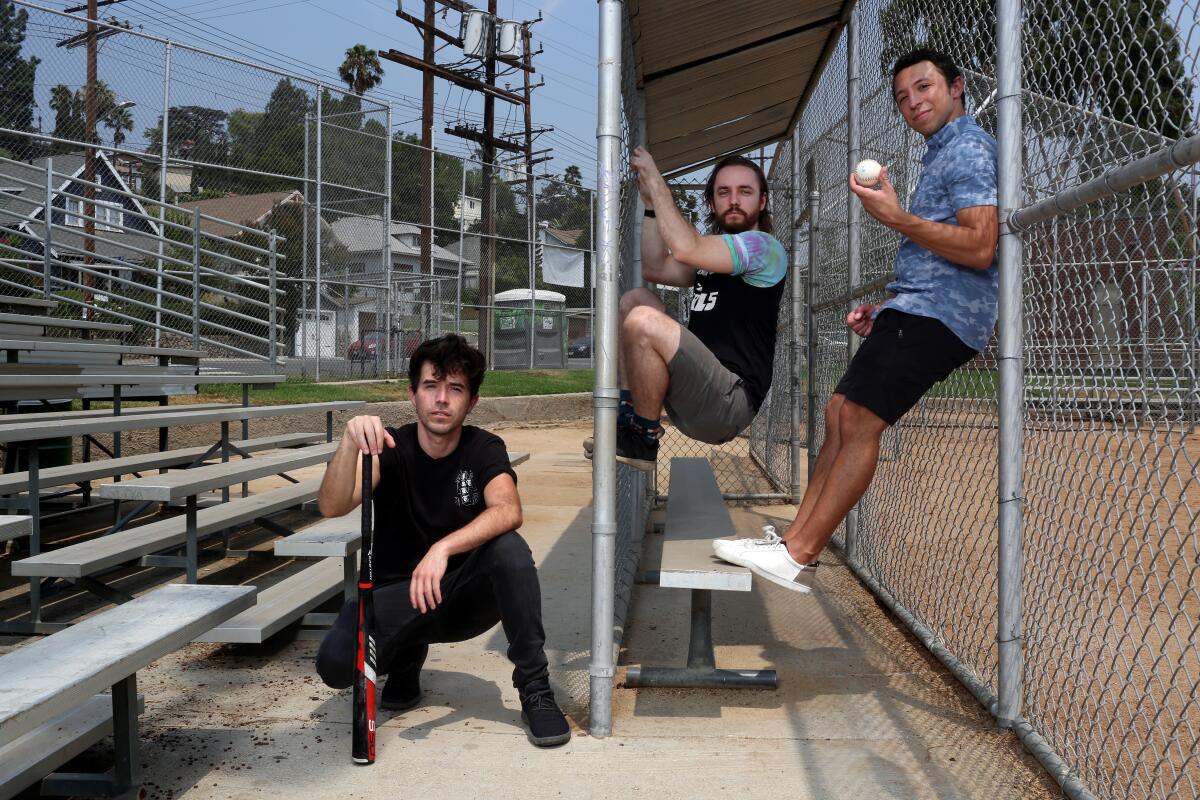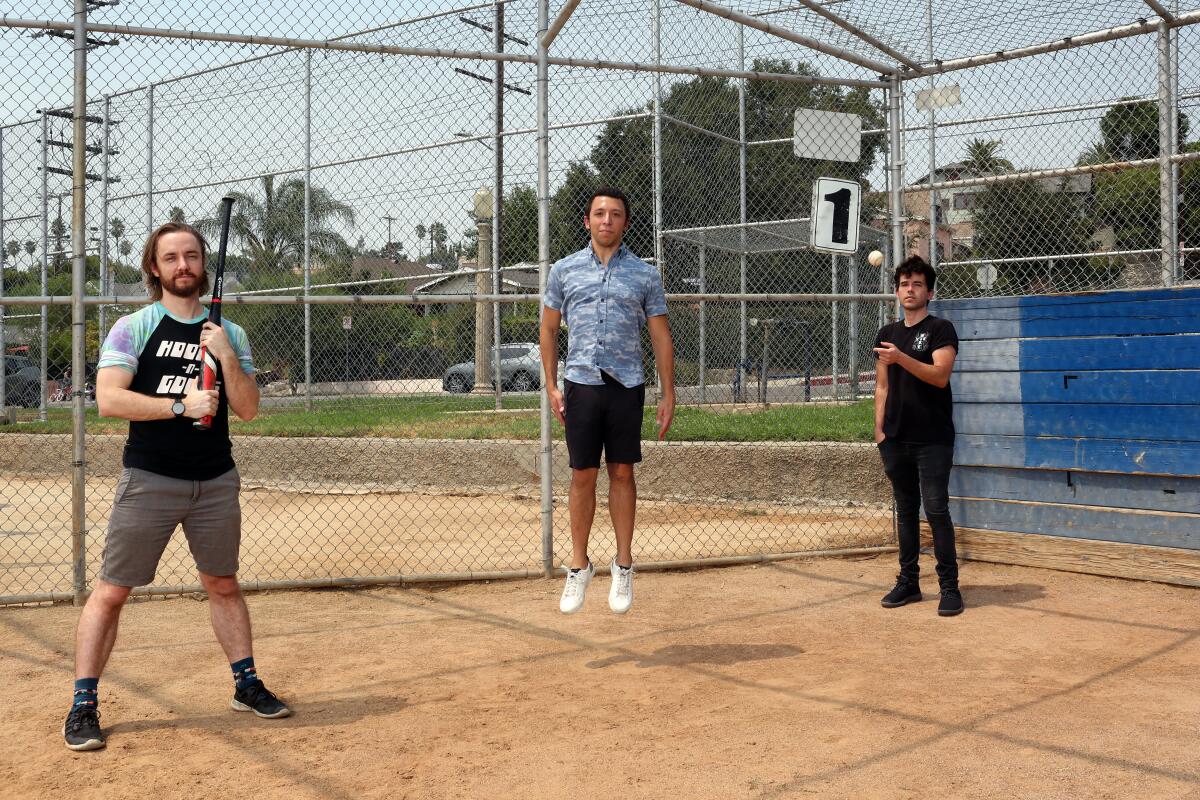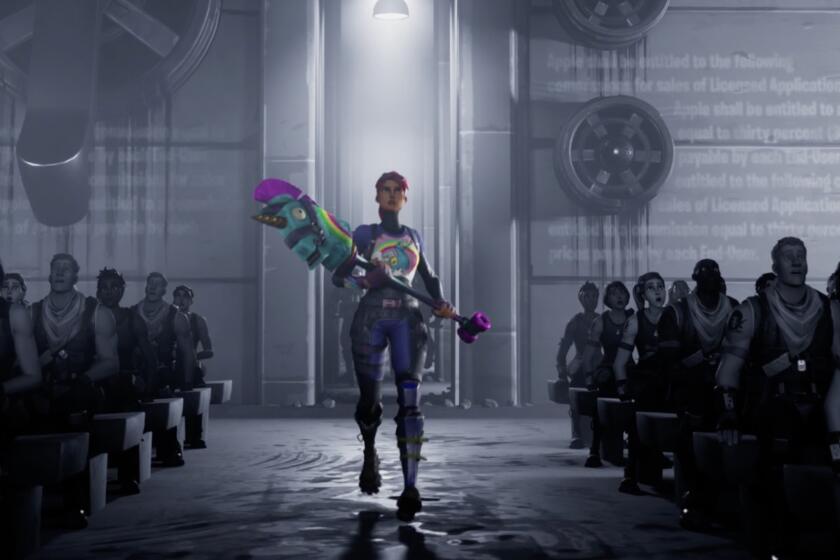It’s a beautiful summer for ‘Blaseball.’ Yes, ‘Blaseball,’ where America’s pastime meets ‘D&D’

Baseball right now is weird.
It’s nice, of course, for fans to have something to watch, but with empty stadiums, games postponed because of players becoming sick with COVID-19 and audiences represented either by cardboard cutouts or virtual avatars, something feels ... off.
But there’s is a version of baseball that has taken the summer by storm, an online universe where teams such as the Baltimore Crabs, the Hades Tigers and the Charleston Shoe Thieves seem as popular and hated as the Dodgers, Yankees or the Cubs, complete with fan-run Twitter accounts and social media feeds that act as fictional news networks.
It’s weird, yes. Umpires have the seemingly unpredictable ability to disintegrate players with their eyes. The woeful Los Angeles Tacos are currently without a city, as the team appears trapped in multiple dimensions; and peanuts — or a peanut — may or may not have deity-like abilities.
With no advertising and no real graphics to speak of, the free, Web-browser-based “Blaseball” has become so popular that its creators, L.A.-based game studio the Game Band, had to hit the pause button and figure out a way to regroup (just under 1,500 donors support the game on crowd-funding site Patreon). It also gives those who aren’t playing a chance to partake in “Blaseball’s” fourth season, which began today. Each season lasts only a week and builds upon the rule changes of the previous one, meaning the underlying narrative of the “Blaseball” of today looks very different than the “Blaseball” of July, when it began.
The core hook is that players pick a favorite team, follow them, bet on them and use their fictional winnings to vote on elections — successful ones generally garner more than 10,000 votes — that changes the outcome of future seasons. While this work clearly comes from pandemic-challenged imaginations, its idea was seeded in a prior baseball season during a playoff game at Dodger Stadium, when two anchors of the Game Band asked themselves what would happen if baseball could break free from its “chains of tradition and history.”
“It was a pretty big game,” says Joel Clark, a Game Band designer and Dodgers fan who went to the postseason bout with studio founder Sam Rosenthal.
“But we sat there the whole time and riffed on the rules of baseball, and how it could be different. It’s a game that’s been set in its current set of rules — and its unwritten rules — and has so much difficulty changing. It’s natural to think about how it could work differently or people could affect it. We were throwing out weird rules. ‘What if players had buckets of water on their head?’ They can dive for a ball, but then water splashes out and breaks the game.”
And in 2020, when so much of so-called normal life has been postponed, canceled or simply gone bankrupt, “Blaseball’s” ridiculousness feels just right, perhaps even more so than Major League Baseball games. The latter are trying, dutifully, to pretend that things are as commonplace as usual, a tactic that often serves to highlight rather than obscure our current challenges and anxieties.
“Blaseball” has no interest in pretending anything is ordinary. Or, rather, “Blaseball’s” fans don’t, and the Game Band compares themselves to dungeon masters in a game of “Dungeons & Dragons,” rolling out scenarios that are presented only with text prompts and box scores, allowing those following along to dream up tales based on exaggerated rules.
“There’s this facade of normalcy that they’re trying to paint over everything that you can see through pretty quickly,” says the studio’s Stephen Bell, referring to MLB. “So I think our fans have found some gallows humor comfort.” Thus, it’s not no-hitters that are exciting; it’s umpire-driven incinerations. And it’s not grand slams that matter as much as “grand unslams,” a tech glitch that erased a home run but then became a world-shifting narrative moment.
Epic’s antitrust lawsuits to keep “Fortnite” on Apple and Google Play apps could shape the next generation of gaming. What do “Fortnite” players think?
Yet for all its surrealism, it’s also a game of beautiful, communal idealism. The game shifts because of the whimsy of its fans, who vote for rule changes and game additions or subtractions and then simply watch games unfold as if participating in a rotisserie baseball league.
“It’s asking the player to explore and to try to uncover mysteries with everyone else playing the game,” says Rosenthal, acknowledging that newcomers who don’t go venturing online to find the tales behind the players and the team may wonder what all the hype has been about.
“That type of mindset, if you haven’t played a lot of games before, it’s not a natural one to fall into,” says Rosenthal.

Think of the silly, absurdist world of “Blaseball” as being written and imagined as it happens, as its core three-person development team outlines a loose narrative skeleton and then improvises based on how the community responds. They’re the ones voting for “Blaseball’s” tweaks and rule changes and turning to social media to help flesh out the game’s story. There is a “Blaseball” rulebook, but much of it is redacted like an FBI document made public, with certain fan actions triggering more reveals.
“It kind of feels like a multimedia equivalent of an exquisite corpse,” says J. Bone-Christian, a 24- year-old fan in Portland, Ore., who’s been tinkering with a podcast from the point of view of one of “Blaseball’s” fictional players. “All the content that people create, whether on the wiki or on social media, sort of stacks on itself. Being in an environment like that is incredibly inspiring to me, because we’re all getting out of our comfort zones and trying new things.”
Arriving as it did during an election year, “Blaseball” is a not entirely just goofiness. Its voting system shows the power of democracy. Many of the in-game measures up for debate hint at wealth distribution or efforts to increase parity, enforcing teams to trade top players to level the playing field or changing the rules to benefit the less fortunate teams. Bad teams, for instance, were blessed recently with an extra strike. There was also a measure that would require that the luckiest of fans redistribute part of their fictional winnings to the league at large.
“We started the Game Band to make games that were really different and reflective of the world we lived in,” says studio founder Rosenthal, noting the game’s voting mechanics and the themes they allude to are simply the reality of making a game in 2020. The studio’s first game, “‘Where Cards Fall,” is a melancholic work that used relaxing puzzles to discuss the fragility of life’s choices. It was released last year on Apple’s mobile subscription service Apple Arcade and boasted simple touch controls in the hopes of appealing to non-gamers. That’s a goal too with “Blaseball.”
It does so by revealing a sports secret that every baseball fan knows but doesn’t always acknowledge: We’re investing in teams not solely to admire celebrity or athleticism or even hero worship; we care because sports create a community, inspire debates and allow fans to construct storylines around a team.
“We’ve never had the absence of sports in any national or global tragedy,” says Rosenthal. “Even during wartime, there are traditionally sports that are played as a vice people can turn to. We were going to try to fill that gap. And it’s always been surprising to me that a lot of video game fans aren’t sports fans. Sports are the longest lasting form of iterative game design. Every year there’s some small rule change that’s hotly contested and debated endlessly. As a game designer that’s really interesting to me.”
COVID-19 put a pause on Meow Wolf’s most ambitious, risk-taking and topical endeavor yet: the grocery store-inspired Omega Mart, planned for Las Vegas.
Baseball, of course, is also a game of myths, such as called shots, bloody socks and Kirk Gibson’s 1988 World Series pinch home run. “Blaseball” too is creating fairy tales, where a solar eclipse can grant participants unpredictable abilities and players forge their own bats. See star Jessica Telephone, whose bat, the “Dial Tone,” is to be as feared as her prowess on the field (she also may be a demon of some sort).
“Jessica Telephone is really a mercenary at this point,” says Bell. “Blaseball,” instead of math and stats, gives players seemingly pointless details, a player’s blood type or favorite coffee drink. In turn, “Blaseball” becomes a long-running narrative frame for elaborate fan fiction.
“When you change the trappings around a sport — if you get rid of a lot of the machismo and the way that American sports present themselves and put it in a different lens, people are primed to enjoy this stuff,” says Rosenthal.
“Blaseball” strips baseball of its emphasis on competition and reminds us of why we love the game to begin with: It’s the personal stories sports inspire us to have with our friends or loved ones. Today’s high-priced tickets and multimillion dollar contracts that put players on a pedestal can distract from such simple joys as having a conversation in the stands about, say, imagining buckets full of water on everyone’s heads.
More to Read
The biggest entertainment stories
Get our big stories about Hollywood, film, television, music, arts, culture and more right in your inbox as soon as they publish.
You may occasionally receive promotional content from the Los Angeles Times.












